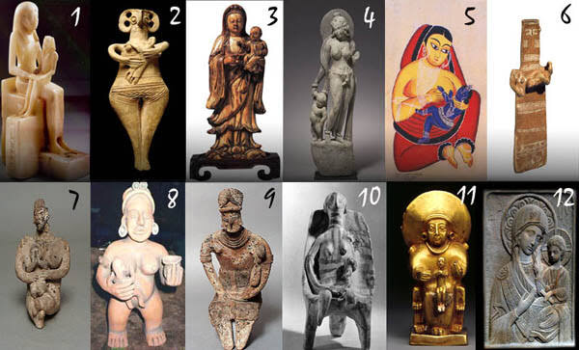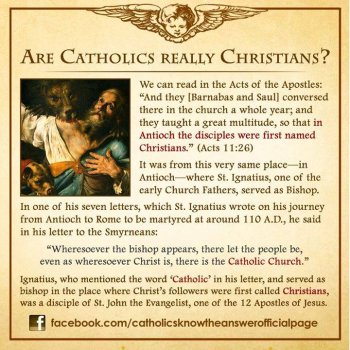To preface, the Koine Greek word
"ἀδελφός'' (adelphos), or
“brother,” has the following definitions: "fellow-countryman," "disciple/follower," "one of the same faith," and "kinsman/kinswoman, or relative," e.g., sibling, cousin, nephew, niece, uncle, aunt, etc. In the plural (
ἀδελφοί;adelphoi), it regularly refers to men and women.
In Matt. 13:55/Mk. 6:3, Joseph, Simon, James, and Judas (Jude/Thaddeus) are called Jesus's
"ἀδελφοί" (adelphoi), or
“brothers.” The context shows that the applicable definition is "kinsman, or relative." In Gal. 1:19, Paul calls a man named "James" Jesus's
"ἀδελφός" (adelphos), or
"brother," and the context shows that the applicable definition is "kinsman, or relative" as well. Therefore, we can deduce that the James's in Matt. 13:55/Mk. 6:3 and Gal. 1:19 were the same person. In the same verse, Paul indicates that James is one of the Twelve, and only one of the two named "James" of the twelve apostles, and their known siblings, correspond with Matt. 13:55/Mk. 6:3:
Apostle James (the Great) and Apostle John of Zebedee
(Matt. 4:21, Mk. 1:19;3:17;10:35, Lk. 5:10, Ac. 12:1-2)
Apostle
James (the Less), Apostle
Judas (Jude/Thaddeus), and
Joseph of Alphaeus
(Matt. 10:3, Mk. 3:18, Mk. 15:40, Lk. 6:15-16, Ac. 1:13)
__________________________________________
The following scriptural verses and early Christian testimonies provide genealogical evidence to prove that the apostles James and Judas (Jude/Thaddeus) of Alphaeus, and their siblings, were the brothers (kinsmen/relatives) of Jesus:
Two accounts of the same scene:
"
Mary the
mother of James"
(Mk. 16:1)
"
Mary the
mother of James"
(Lk. 24:10)
Three accounts of the same scene:
"Mary Magdalene,
Mary (Mary of Clopas/Cleophas) the
mother of James (the Less
) and
Joseph, and the mother of the sons of Zebedee (Salome)"
(Matt. 27:56)
"Mary Magdalene,
Mary (Mary of Clopas/Cleophas) the
mother of James the Less and Joseph, and Salome (the mother of the sons of Zebedee)"
(Mk. 15:40)
"His (Jesus's) Mother, His (Jesus's) Mother's
sister Mary the
wife of Clopas/Cleophas (the mother of the James the Less and Joseph), and Mary Magdalene"
(Jn. 19:25)
I. "
Mary the
wife of Cleophas or Alphaeus (Clopas), who was the
mother of James the bishop and apostle, and of
Simon and
Thaddeus (Jude/Judas), and of one
Joseph." (Papias of Hierapolis [c. 60–130 AD],
Fragments of Papias, Frag. 10,
cf. Jn. 19:25)
II. "...
James, who is called the
brother of the Lord ... as appears to me, the
son of Mary sister of the mother of our Lord ... after
ordained by the apostles bishop of Jerusalem,
wrote a single epistle, which is reckoned
among the seven Catholic epistles" (
cf. Jud. 1:1) and "...
Mary who is described as the
mother of James the Less was the
wife of Alphaeus and
sister of Mary the Lord's mother" (Jerome of Stridon [c. 347–420 CE],
De Viris Illustribus,
De Perpetua Uirginitate Beatae Mariae,
cf. Jn. 19:25)
III. Eusebius of Caesarea [c. 260–340 AD] relates the following in his
Historia Ecclesiastica:
"
James, the
brother of the Lord, was "...the
author of the first of the so-called catholic epistles" and that while it is disputed, "as is the case likewise with the epistle that bears the name of Jude, which is also one of the seven so-called catholic epistles," it is known they have been "...read publicly in very many churches." (Bk. I, ch. 23,
cf. Jud. 1:1)
"
James ...
surnamed the Just ...
bishop of the church of Jerusalem.
This James was called the brother of the Lord..." and "Paul also makes mention of the same James the Just, where he writes, 'Other of the apostles saw I none, save James the Lord's brother.'" (Bk. II, ch. 1)
"...those of the apostles and disciples of the Lord ... with those that were related to the Lord according to the flesh ... pronounced
Symeon (Simon),
the son of Clopas ... to be worthy of the episcopal throne of that parish.
He was a cousin, as they say,
of the Saviour.
For Hegesippus records that Clopas was a brother of Joseph." (Bk. III, ch. 11)
"Josephus, at least, has not hesitated to testify this in his writings, where he says, 'These things happened to the Jews to avenge
James the Just, who was a
brother of Jesus, that is called the Christ.'" (Bk. II, ch. 23)
"...the brother of Jesus, who was called Christ, whose name was James" (Flavius Josephus [c. 37-100 CE],
Antiquitates Iudaicae, Bk. XX, ch. 9)
"...
James the Just bishop of Jerusalem" and "...but there were two Jameses: one called the Just ... thrown from the pinnacle of the temple ... and beaten to death with a club by a fuller, and another who was beheaded." (Bk. II, ch. 1) (Clement of Alexandria [c. 150–215 AD],
Hypotyposes, Bk. VII,
cf. Ac. 12:1-2)
"...
James the
brother of the Lord,
succeeded to the government of the Church ...
called the Just ..." (Bk. II, ch. 23) and "after James the Just had suffered martyrdom ...
Symeon (Simon), the
son of the Lord's uncle, Clopas, was appointed the next bishop ...
because he was a cousin of the Lord." (Bk. III, ch. 22) (Hegesippus [c. 110-180 AD],
Hypomnemata)
__________________________________________
Summary
The scriptural verses and crossover agreement between all my sources,
even if not every surname is listed by each individual source, collectively proves the following:



